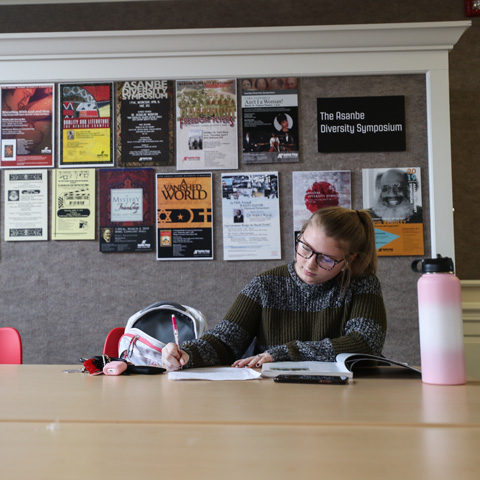Why Study Writing
The Bureau of Labor Statistics predicts that the number of jobs in technical writing and related fields will grow on pace with the expanding career field; job growth from 2024 until 2033 meets the national average of all occupations and is higher than related fields in media and communication. Our signature concentration in Professional, Technical, and Creative (PTC) Writing is unique in the region, allowing students to enhance their full range of writing capacities. Job openings in PTC are most common with high-tech industries in places like California, Texas, and the Northeast, but Tennessee employs more technical writers than the national average, and the mean pay for technical writers is higher than comparable careers in Tennessee. Many of our former APSU students have successful careers in their field after graduation.
PTC faculty have decades of experience as educators, editors, and writers. They take pride in individualized success for students. Dr. Deeren is an award-winning fiction writer and professor of working-class experiences and is an important part of our internship opportunities. Dr. Fuglsby teaches technical and professional communication courses and researches topics of digital writing, collaboration, and intercultural communication. Dr. Major has published on international communication, computer editing tools, and collaboration. A technical writer since 1988, Dr. Wadia brings his wide experience to audiences at large regional conferences such as SCMLA. He frequently presents on issues related to workplace professionalism and tips for success with employment opportunities as technical writer or editor.
You Can Expect To...
-
Write and revise original, creative projects
-
Practice and sharpen professional editing and publishing skills
-
Collaborate and explore with classmates, faculty, and industry professionals
-
Broaden your worldview by reading across experiences, perspectives, and professions
-
Invest in internship opportunities
-
Develop proficiency with the tools of language
-
Engage with visiting authors and industry experts
-
Choose from a variety of courses across genres and styles
-
Participate in local, regional, and national conferences
-
Expand on professional online and library research skills
What Will I Learn
-
Enhance your critical thinking and communication skills
-
Comprehend the nuances of language and rhetoric
-
Responsibly and ethically manage Artificial Intelligence (AI) in writing situations
-
Compose a compelling resume, write effective application letters, and learn engaging interviewing techniques
-
Design text and visuals for appealing and usable documents
-
Prepare effective oral presentations using PowerPoint, Canva, and other software
-
Understand and implement effective social media and digital communication strategies
-
Prepare documentation for training manuals and write briefing reports
-
Apply desktop publishing skills to create marketing and PR materials
-
Create effective workplace documents such as professional correspondence, reviews, reports, proposals, policies, and digital and social media content
-
Critically analyze and address rhetorical situations and the needs of particular audiences
Program Information
Professional, Technical, Creative Writing Program Requirements
English: Professional, Technical, Creative Writing Sample 4 Year Plan
